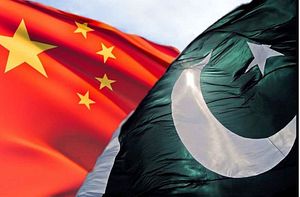On April 17, a Chinese national accused of blasphemy was arrested in the Kohistan district of Pakistan’s Khyber Pakhtunkhwa province. The accused – identified only by his surname, Tian – is an engineer in charge of heavy machinery for China Gezhouba Group Company at the Dasu hydropower project. He was accused of blasphemy by local drivers working under his supervision.
According to local reporting, a row erupted on April 15 when Tian reprimanded his subordinates for taking a longer time than specified for offering afternoon prayers. During the ensuing argument, Tian reportedly made derogatory remarks against Allah and Prophet Muhammad, as alleged in the formal police complaint filed against the Chinese national.
The accusation was followed by protests from enraged locals, who blocked the main highway that connects Pakistan to China. The protest came to an end after police arrested Tian and lodged an FIR against the accused under section 295-C of the Pakistan Penal Code, which carries the death penalty.
Although the details of this case are yet to come out, we have repeatedly witnessed the mala fide intentions behind other such cases. Blasphemy is a very sensitive issue in Pakistan. A mere allegation of blasphemy can place the accused in hot water. Given the fact that a large number of people can be mobilized instantly on the issue of blasphemy, such accusations have been repeatedly used by individuals to settle personal vendettas. There are many examples of such false accusations; however, the most gruesome and relevant case is the mob lynching of Priyantha Kumara.
Kumara, a 49-year-old Sri Lankan national, was working as a general manager in a local garments factory in Sialkot. He was lynched by an enraged mob on December 3, 2021, over allegations of blasphemy. The allegation turned out to be false, as the investigation later revealed that the workers involved in the gruesome incident disliked Kumara for being strict in enforcing discipline.
The same dynamics seems to be in play in the case of Tian, who was also strict in enforcing discipline by reprimanding the accusers for taking too long to pray during work hours as the initial reports suggest.
It is pertinent to mention here that Tian is not the first Chinese national to be accused of blasphemy in Pakistan. In May 2013, a Chinese national, Lee Ping, who was working as an administration manager of a Chinese consortium building a major hydropower project in Azad Kashmir, was accused of throwing the Quran on the ground, prompting blasphemy charges against the manager. However, a police investigation later on cleared the Chinese worker of blasphemy charges and took action against 35 people who were involved in falsely accusing Lee Ping.
Moving beyond these high-profile cases, the abuse of the issue of blasphemy for settling personal feuds has also been highlighted by the Supreme Court of Pakistan in the verdict of the famous Malik Muhammad Mumtaz Qadri v the State case in 2015. To quote exact words from the judgment, “The majority of blasphemy cases are based on false accusations stemming from property issues or other personal or family vendettas rather than genuine instances of blasphemy and they inevitably lead to mob violence against the entire community.”
The recent incarceration of a Chinese national under Pakistan’s blasphemy law, which carries the death penalty, could have far-reaching consequences for Pakistan’s economic life, which, metaphorically speaking, is already on a ventilator. The incident can further dent the relations between the two countries, which have been in flux for quite some time over growing attacks on Chinese nationals in Pakistan from nationalist and religious militant outfits operating in the country. It can also further spar already existing concerns among foreign investors and businesses operating in Pakistan, particularly those with ties to China making investments in Pakistan.
The bottom line is that at a time when Pakistan’s relations with the Western world are in flux, it cannot afford to estrange China, which is the only key source of foreign direct investment in the country at the moment. Thus, it is of utmost importance for the government of Pakistan to initiate an open dialogue with the key stakeholders to address the issue of reforming the country’s blasphemy laws. These laws have caused a significant level of sensitivity toward blasphemy in Pakistan, despite having no basis in Hanafi Islam. Furthermore, these laws have been exploited on numerous occasions to settle personal disputes as illustrated above. In light of these concerns, it is essential for the government to take proactive measures to address the issue of reform, with the best interest of the country in mind.

































